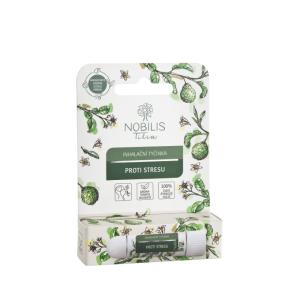
How to Cope with Weight Loss After Hysterectomy and Find Balance

Weight Loss After Hysterectomy - What You Need to Know and Why It's Not Hopeless
Hysterectomy – the surgical removal of the uterus – is a physically and emotionally demanding procedure for many women. It often comes as a solution for painful fibroids, endometriosis, heavy bleeding, or cancer. While for some it means relief from long-standing issues, for others it brings new challenges. One of these is weight gain. Many women ask doctors and themselves: “How can I lose weight after a hysterectomy?" or “Is it even possible to lose weight after a hysterectomy?" The good news is, yes – but the path to the goal may be different than before the surgery.
Why the Body Reacts Differently After a Hysterectomy
To understand why losing weight after the removal of the uterus can be more difficult, it's necessary to briefly look at what happens in the body. A hysterectomy can be either partial (leaving the ovaries) or total (removing the ovaries as well). In the case of a complete hysterectomy, the body stops producing female sex hormones – primarily estrogen and progesterone – which can lead to the sudden onset of menopause, even if the woman was previously of reproductive age.
Hormonal changes have a direct impact on metabolism, fat storage, appetite, and mental health. Estrogen, for example, helps regulate body weight by promoting fat burning and increasing insulin sensitivity. Its decline can lead to the body starting to store fats – especially in the abdominal area – and reducing the ability to burn them. Moreover, hormonal fluctuations often bring sleep disorders, fatigue, or mood swings, which can hinder motivation for a healthy lifestyle.
The Psychological Aspect
The psychological impact of a hysterectomy must not be overlooked. Some women feel relief after the procedure, while others go through a period of sadness, loss of identity, or anxiety about the future. Stress and emotional insecurities can lead to overeating, insufficient exercise, or resignation to self-care. In such moments, it's important to remember that the path to change doesn't have to be perfect – it just needs to be gradual and kind to both body and soul.
Try our natural products
One patient, Mrs. Eva (48), describes her experience as follows: “After the surgery, I was really sad. Everything hurt, and I felt like I was losing a part of myself. I used to run, but now I felt weak. I gained ten kilos in two months. Only when I allowed myself to slow down and start with small steps – a ten-minute walk every day, a bit of yoga, better food – did I start to feel better, and the weight slowly came off."
What Helps with Weight Loss After a Hysterectomy?
Fortunately, there are several steps that can help women after a hysterectomy understand their bodies better and regain balance.
1. Diet as an Ally, Not an Enemy
Food should provide the body with nutrients, not just calories. After a hysterectomy, it's advisable to focus on an anti-inflammatory and hormone-balanced diet – one that supports digestion, reduces inflammation in the body, and stabilizes blood sugar levels. This means:
- more vegetables, legumes, whole grains, and fermented foods,
- quality proteins (legumes, eggs, tofu, fish),
- healthy fats (olive oil, nuts, seeds, avocado),
- limiting sugar, white flour, and highly processed foods.
Natural foods support hormonal balance, while industrial products often disrupt it. A cup of green tea or fermented kefir can support digestion and immunity, which greatly helps the body after the procedure.
2. Tailored Exercise
After surgery, it's important to listen to your body. Not every woman can immediately hit the gym or start running. But regular moderate exercise – like brisk walking, yoga, pilates, or swimming – can work wonders. The key is consistency. Even 20 minutes of movement daily can improve metabolism and mood.
A good start is walking in the fresh air. Gradually, exercises focused on strengthening the core can be added, which not only helps with weight loss but also prevents back pain and improves posture.
3. Sleep and Recovery
After a hysterectomy, the body needs time to heal. And it heals best during sleep. Lack of sleep can lead to increased levels of stress hormones (cortisol), which promote fat storage, especially in the abdominal area. If a woman sleeps poorly, she feels tired, irritable, and often reaches for high-calorie foods as a "quick fix" for fatigue.
The quality of sleep is as important as diet or exercise. A regular routine, limiting blue light in the evening, or natural supplements like lemon balm tea or magnesium help.
Hormones and Their Impact on Weight
One of the less discussed topics is the option of hormone replacement therapy (HRT) after a complete hysterectomy. It helps some women manage the sudden drop in estrogen not only in terms of hot flashes or dryness of mucous membranes but also in efforts to maintain a healthy weight. It's not a universal solution, but it's definitely worth discussing this option with a gynecologist or endocrinologist who knows the woman's detailed health condition.
It's good to know that hormones can also be influenced naturally – for example, by reducing stress, exercising, getting enough sleep, or using herbs like maca, lady's mantle, or vitex (chaste tree).
It's Not a Race – It's a New Chapter
Losing weight after a hysterectomy is not just about numbers on the scale. It's a process where a woman is rediscovering her relationship with her body. A body that has undergone a demanding surgery, that is hormonally different, and that deserves care, not self-blame. Lifestyle changes don't happen overnight. But every step – a better breakfast, stretching in the morning, an extra glass of water – is a step in the right direction.
As nutrition and women's health expert Alena Schillerová says: “Women after a hysterectomy often lose trust in their bodies. But it's during this period that they have the chance to reconnect with it and start caring for it with kindness."
Weight loss after a hysterectomy is not impossible. It's just different. And this "different" can bring a deeper understanding of oneself.


